No New New: Raw Pointers Removed from C++
Two weeks ago, the ISO C++ standard meeting took place in Jacksonville. Today I want to make a short detour and write about the revolutionary decision that was made in the Jacksonville meeting. Additionally, I refer to the post C++ Will no Longer Have Pointers by Fluent C++. The standard committee decided that pointers will be deprecated in C++20 and will, with a very high probability, be removed in C++23.
Honestly, what seems like a revolution is only the last step in a long evolution. First, let me explain the big picture.

The evolution of pointers in C++
Pointers have been part of C++ since the first beginning. We got them from C. From the first beginning, there was always the tendency in C++ to make the handling with pointers more type-safe without paying the extra cost.
With C++98 we got std::auto_ptr to express exclusive ownership. But std::auto_ptr had a big issue. When you copy a std::auto_ptr the resource will be moved. What looks like a copy operation was a move operation. The graphic shows the surprising behavior of a std::auto_ptr.
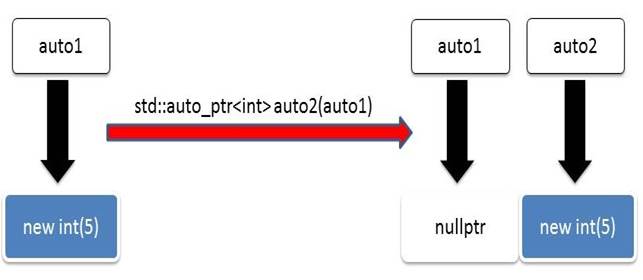
This was extremely bad and the reason for many serious bugs; therefore, we got std::unique_ptr with C++11, and std::auto_ptr was deprecated in C++11 and finally removed in C++17. Additionally, we got std::shared_ptr and std::weak_ptr in C++11 for handling shared ownership. You can not copy but move a std::unique_ptr, and if you copy or assign a std::shared_ptr, the internal reference counter will be increased. Have a look here:
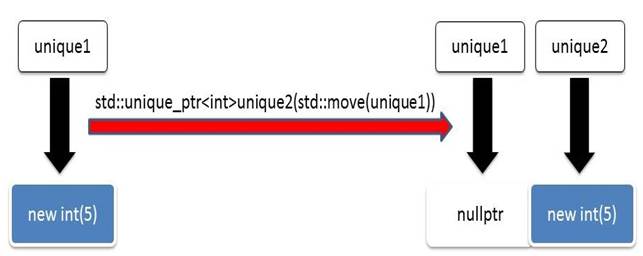
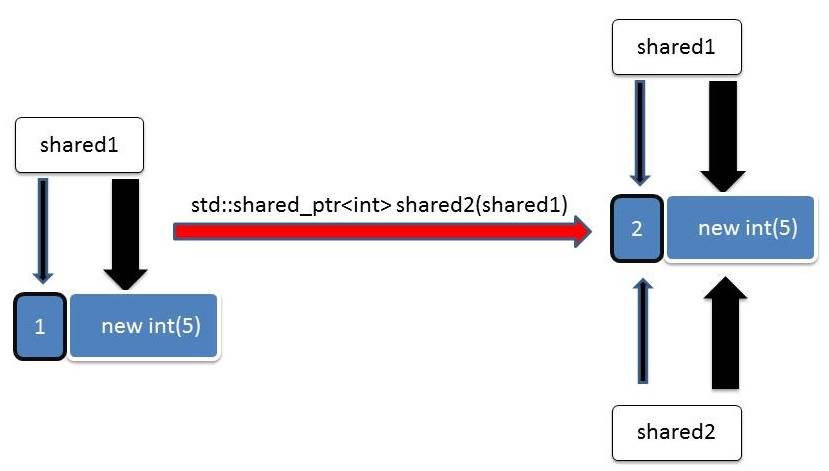
Since C++11 C++ has a multithreading library, this makes the handling with std::shared_ptr quite challenging because a std::shared_ptr is per definition shared but not thread-safe. Only the control block is thread-safe but not the access to its resource. That means modifying the reference counter is an atomic operation and you have the guarantee that the resource will be deleted exactly once. This is the reason we will get C++20 atomic smart pointers: std::atomic_shared_ptr and std::atmic_weak_ptr. Read the details in the proposal: Atomic Smart Pointers.
 Modernes C++ Mentoring
Modernes C++ Mentoring
Do you want to stay informed: Subscribe.
Now to the more exciting part of C++20 and C++23. Pointers will be deprecated in C++20 and removed in C++23. Or to say it with three words: No New New (NNN).
std::unique_ptr to our rescue
But hold, we have a dogma in C++: Don’t pay for anything you don’t need. How can we program without a pointer? Just use an std::unique_ptr. A std::unique_ptr is by design as fast and as slim as a raw pointer but has a great benefit: it automatically manages its resource.
Only to remind you. Here is a simple performance test.
// all.cpp #include <chrono> #include <iostream> static const long long numInt= 100000000; int main(){ auto start = std::chrono::system_clock::now(); for ( long long i=0 ; i < numInt; ++i){ int* tmp(new int(i)); delete tmp; // std::shared_ptr<int> tmp(new int(i)); // std::shared_ptr<int> tmp(std::make_shared<int>(i)); // std::unique_ptr<int> tmp(new int(i)); // std::unique_ptr<int> tmp(std::make_unique<int>(i)); } std::chrono::duration<double> dur= std::chrono::system_clock::now() - start; std::cout << "time native: " << dur.count() << " seconds" << std::endl; }
The program allocates and deletes 100.000.000 ints. I use a raw pointer, std::shared_ptr, and std::unique_ptr in two variations. I executed the program with and without maximum optimization on Linux and Windows. Here are the numbers.

The numbers show it black on blue. The two variations of std::unique_ptr are as fast as the raw pointers on Linux and Windows. For the details of the numbers, read my previous post: Memory and Performance Overhead of Smart Pointers.
Ownership semantic
We use pointers, particularly raw pointers, far too often. The question if you should use a pointer boils down to one question: Who is the owner? Luckily, we can directly express our intention about ownership in code.
- Local objects. The C++ runtime, as the owner, automatically manages the lifetime of these resources. The same holds for global objects or members of a class. The guidelines call them scoped objects.
- References: I’m not the owner. I only borrowed resources that could not be empty.
- Raw pointers: I’m not the owner. I only borrowed the resource that can be can be empty. I must not delete the resource.
- std::unique_ptr: I’m the exclusive owner of the resource. I may explicitly release the resource.
- std::shared_ptr: I share the resource with other shared ptr. I may explicitly release my shared ownership.
- std::weak_ptr: I’m not the owner of the resource, but I may become temporary the shared owner of the resource by using the method std::weak_ptr::lock.
We have only to change our practice in one out of six use cases, and we are okay with the next evolution step in C++.
What’s next?
Sorry for the detour, but the Jacksonville decision was worth a detour. The next post will be about the rules for performance in the C++ Core Guidelines.
Further Information
The decision to the next pdf bundle is made. It will take me about a week to prepare the pdf-bundles. First, I have to look for typos. People already subscribed to my newsletter will get them automatically.
Thanks a lot to my Patreon Supporters: Matt Braun, Roman Postanciuc, Tobias Zindl, G Prvulovic, Reinhold Dröge, Abernitzke, Frank Grimm, Sakib, Broeserl, António Pina, Sergey Agafyin, Андрей Бурмистров, Jake, GS, Lawton Shoemake, Jozo Leko, John Breland, Venkat Nandam, Jose Francisco, Douglas Tinkham, Kuchlong Kuchlong, Robert Blanch, Truels Wissneth, Mario Luoni, Friedrich Huber, lennonli, Pramod Tikare Muralidhara, Peter Ware, Daniel Hufschläger, Alessandro Pezzato, Bob Perry, Satish Vangipuram, Andi Ireland, Richard Ohnemus, Michael Dunsky, Leo Goodstadt, John Wiederhirn, Yacob Cohen-Arazi, Florian Tischler, Robin Furness, Michael Young, Holger Detering, Bernd Mühlhaus, Stephen Kelley, Kyle Dean, Tusar Palauri, Juan Dent, George Liao, Daniel Ceperley, Jon T Hess, Stephen Totten, Wolfgang Fütterer, Matthias Grün, Ben Atakora, Ann Shatoff, Rob North, Bhavith C Achar, Marco Parri Empoli, Philipp Lenk, Charles-Jianye Chen, Keith Jeffery, Matt Godbolt, Honey Sukesan, bruce_lee_wayne, Silviu Ardelean, schnapper79, Seeker, and Sundareswaran Senthilvel.
Thanks, in particular, to Jon Hess, Lakshman, Christian Wittenhorst, Sherhy Pyton, Dendi Suhubdy, Sudhakar Belagurusamy, Richard Sargeant, Rusty Fleming, John Nebel, Mipko, Alicja Kaminska, Slavko Radman, and David Poole.
| My special thanks to Embarcadero |  |
| My special thanks to PVS-Studio |  |
| My special thanks to Tipi.build |  |
| My special thanks to Take Up Code |  |
| My special thanks to SHAVEDYAKS |  |
Modernes C++ GmbH
Modernes C++ Mentoring (English)
Rainer Grimm
Yalovastraße 20
72108 Rottenburg
Mail: schulung@ModernesCpp.de
Mentoring: www.ModernesCpp.org


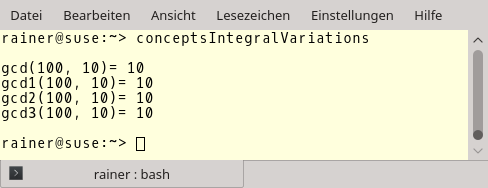
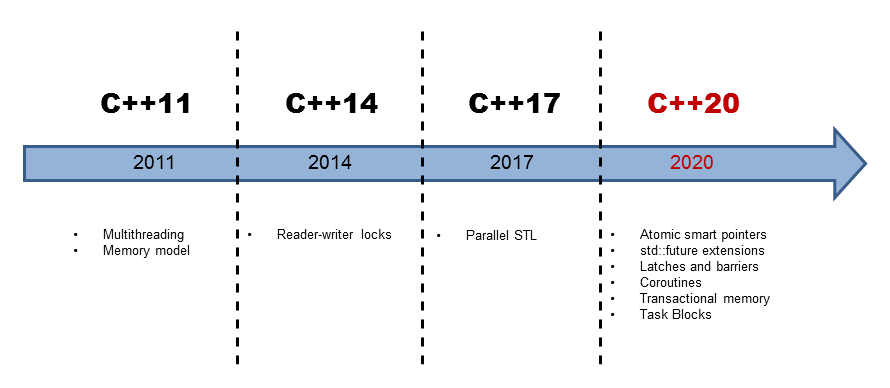
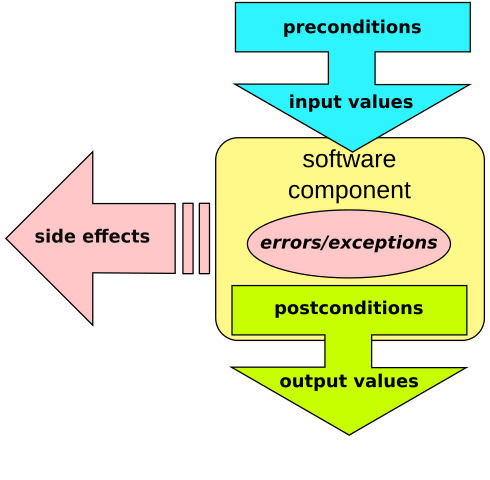

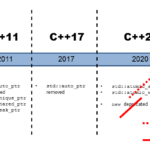
Leave a Reply
Want to join the discussion?Feel free to contribute!